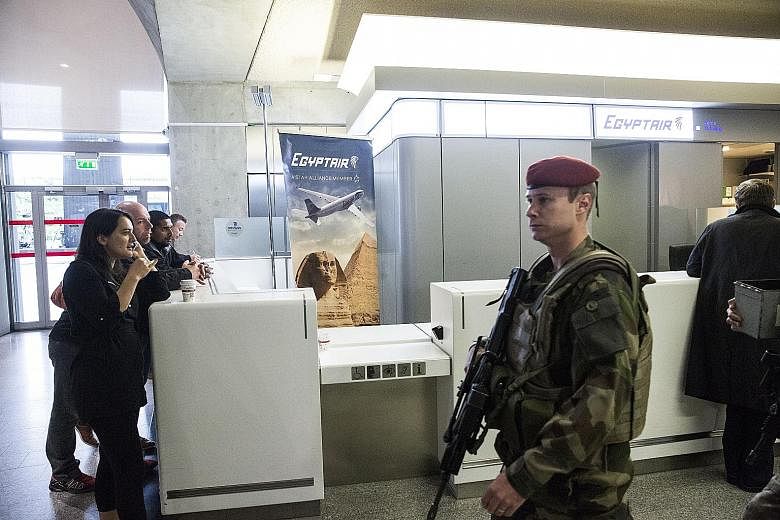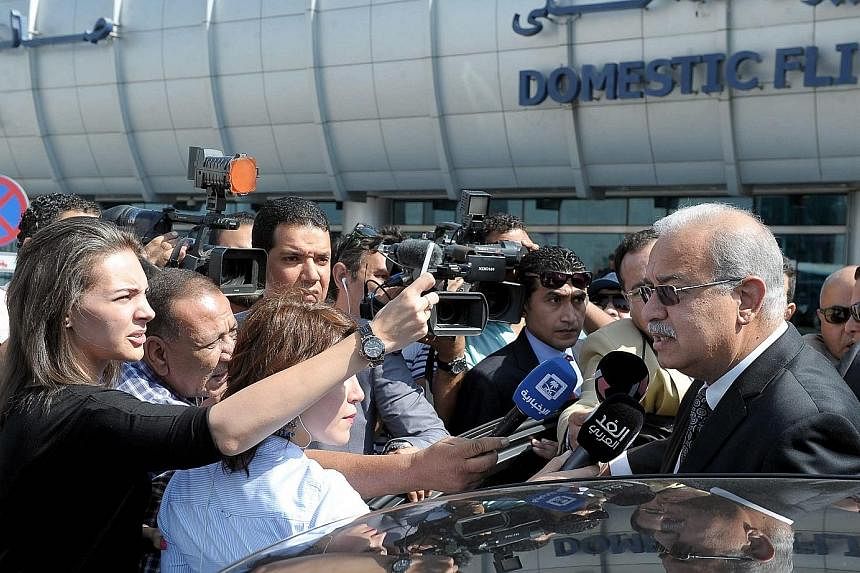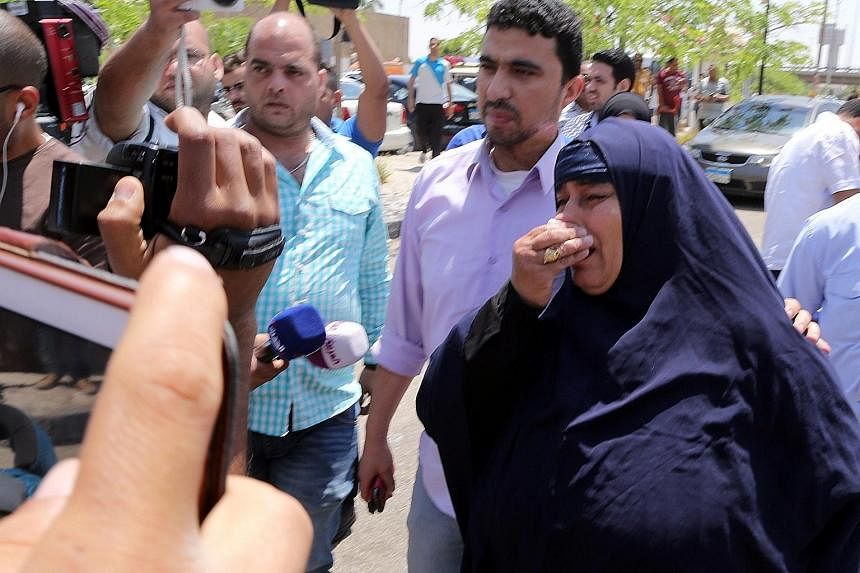1. TERRORISM
Both France and Egypt have been leading targets for Islamist extremists in recent months. Last October, the Islamic State in Iraq and Syria militant group claimed responsibility for bombing an A-321 plane - belonging to Russian charter firm Metrojet - that crashed into the Sinai desert on its way from the Egyptian resort of Sharm el-Sheikh to St Petersburg in Russia, killing 224 passengers and crew.
Egypt initially denied that the crash was connected to terrorism, even as Russia and Britain said they believed a bomb had been responsible. But in February, Egyptian President Abdel-Fattah el-Sissi said the flight had been brought down by terrorists, although he did not specify which group.
One major factor pointing to a terror attack on EgyptAir Flight MS804 is the fact that there does not appear to be any distress signal sent from the plane. "A technical problem, a fire or a motor malfunction doesn't cause an instantaneous accident and the crew has time to react," said Mr Jean-Paul Troadec, former president of the French air accident investigation bureau.
"Here, the crew didn't say anything," he added.
A Greek Defence Ministry source was quoted early yesterday as saying the authorities were investigating reports from the captain of a merchant ship of "a flame in the sky" around 130 nautical miles south of the Greek island of Karpathos, near where the last contact with the plane was made.
If a bombing is established, the question for investigators will be how a device was smuggled aboard a flight taking off from France's busiest airport, Charles de Gaulle.
"A bomb placed on board at Roissy or in Cairo is always possible because it's difficult to make your airport 100 per cent watertight, even in an airport with such tight surveillance as Roissy (Charles de Gaulle)," said aid aeronautics expert Gerard Feldzer.
Security at Charles de Gaulle Airport was tightened after the terrorist attacks on the French capital last November, and scrutiny of passengers and luggage was also stepped up in the wake of the bombing of Brussels Airport in March.
Since the Paris attacks, the French authorities have used the threat of terrorism to justify raids of employee lockers at Charles de Gaulle Airport as well as a systematic review of the roughly 87,000 airport employees who have badges giving them access to secure areas, including the tarmac, baggage handling and cargo storage. Those reviews have led the authorities to revoke dozens of badges for security reasons, according to the airport police.
Rules that ban passengers from carrying liquids, gels and aerosols in hand luggage were extended to apply to airline and airport personnel as well as anyone with access to secure areas of the airport.
Meanwhile, Egyptian airport security came under scrutiny again in March after a passenger hijacked an EgyptAir domestic flight to Cairo from Alexandria and diverted it to Cyprus. The crisis ended hours later with the surrender of the hijacker, who the Cypriot authorities later said was suffering from psychological problems.
2. MECHANICAL FAILURE
Experts say the chances of a mechanical malfunction are slim. The ill-fated aircraft passed through airports in Tunisia and Eritrea in the four journeys it made on Wednesday before the Paris-Cairo flight, but no warning flags were raised.
"A major technical fault - the explosion of a motor, for instance - seems improbable," said Mr Feldzer, noting that the A-320 in question was "relatively new", having entered service in 2003.
In addition, the A-320 has an excellent safety record as the best- selling, medium-range airliner in the world. An A-320 takes off or lands every 30 seconds around the world, said Mr Feldzer.
Mr Troadec said: "It's a modern plane. The incident happened in mid-flight in extremely stable conditions. The quality of the maintenance and the quality of the plane are not in question in this incident."
EgyptAir "is a company with authorisation to operate in Europe, so it is not on any blacklist", he added.
EgyptAir vice-chairman Ahmed Abdel said there were "no reported snags" from the crew in Cairo or Paris, nor was there any special cargo or notification of dangerous goods on board. The airline has a fleet of 57 Airbus and Boeing jets, including 15 of the Airbus A-320 family of aircraft, according to airfleets.com.
The last fatal incident involving an EgyptAir plane was in May 2002, when a Boeing 737 crashed into a hill while approaching Tunis-Carthage International Airport in Tunisia, killing 14 people.
3. SHOT DOWN
The Airbus A-320, which was flying at 11,000m, first swerved 90 degrees to the left, then spun through 360 degrees to the right, before plunging to 4,500m and vanishing from Greek radar screens, Greek Defence Minister Panos Kammenos told a news conference yesterday.
Experts noted that a jet flying at 11,000m would be out of reach of portable rocket launchers used by militant groups in the Middle East. "We cannot exclude the possibility it was shot down by another aircraft by mistake, but it is likely we would already know," said Mr Feldzer.
The region around northern Egypt, including the Israeli and Gazan coastlines, is "one of the most monitored regions in the world, including by satellite", he added. "It would be very difficult to hide this kind of information."
4. ROGUE PILOT
EgyptAir said the flight crew for MS804 were experienced, with the pilot having clocked 6,275 hours of flying experience, including 2,101 hours on the A-320, and the first officer had 2,766 hours.
But the airline has been criticised for its lack of transparency in aviation accidents.
In 1999, an EgyptAir flight crashed into the Atlantic Ocean shortly after taking off from John F. Kennedy International Airport in New York, killing all 217 people on board.
Although United States investigators concluded that the co-pilot had steered the airplane into the sea, EgyptAir rejected the idea of suicide and still insists that the crash was caused by an unspecified mechanical failure.
AGENCE FRANCE- PRESSE, REUTERS, NEW YORK TIMES



